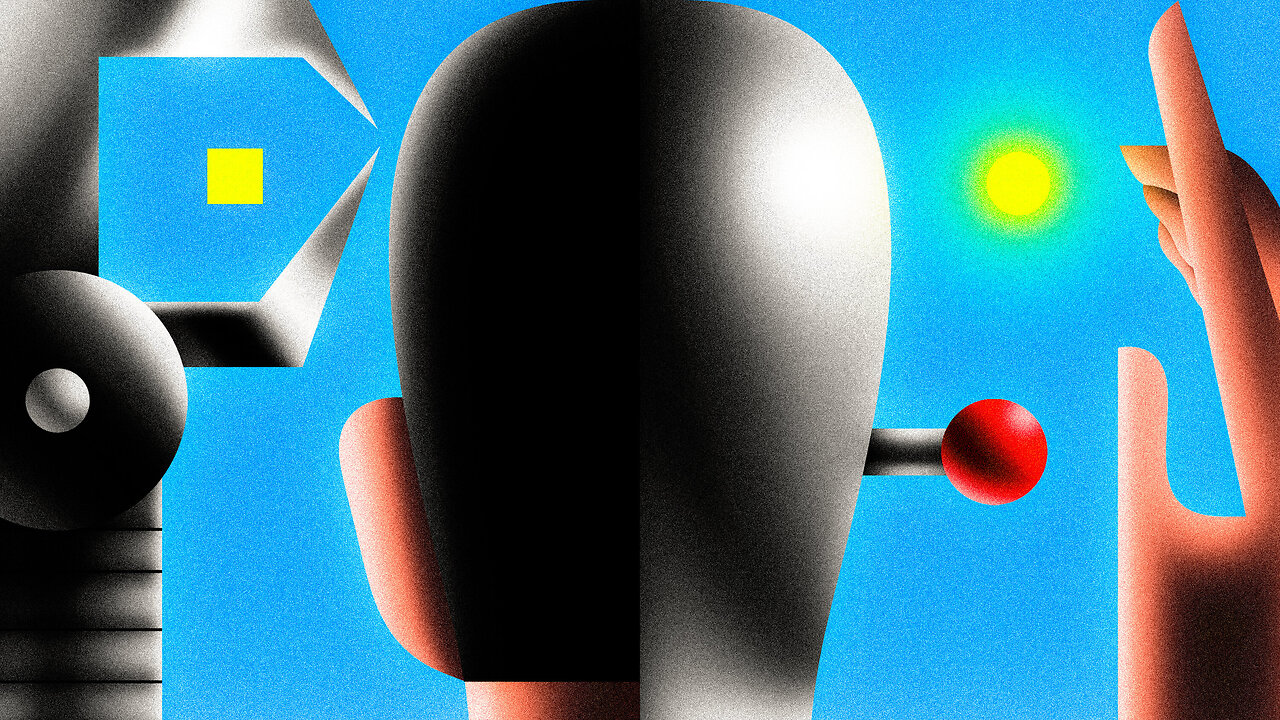Premium Only Content

Opinion How A.I. and ChatGPT May Change Medicine - The New York Times
🥇 Bonuses, Promotions, and the Best Online Casino Reviews you can trust: https://bit.ly/BigFunCasinoGame
Opinion How A.I. and ChatGPT May Change Medicine - The New York Times
Guest Essay Video Credit Credit... Shira Inbar By Daniela J. Lamas Dr. Lamas, a contributing Opinion writer, is a pulmonary and critical-care physician at Brigham and Women’s Hospital in Boston. When faced with a particularly tough question on rounds during my intern year, I would run straight to the bathroom. There, I would flip through the medical reference book I carried in my pocket, find the answer and return to the group, ready to respond. At the time, I believed that my job was to memorize, to know the most arcane of medical eponyms by heart. Surely an excellent clinician would not need to consult a book or a computer to diagnose a patient. Or so I thought then. Not even two decades later, we find ourselves at the dawn of what many believe to be a new era in medicine, one in which artificial intelligence promises to write our notes, to communicate with patients, to offer diagnoses. The potential is dazzling. But as these systems improve and are integrated into our practice in the coming years, we will face complicated questions: Where does specialized expertise live? If the thought process to arrive at a diagnosis can be done by a computer “co-pilot,” how does that change the practice of medicine, for doctors and for patients? Though medicine is a field where breakthrough innovation saves lives, doctors are — ironically — relatively slow to adopt new technology. We still use the fax machine to send and receive information from other hospitals. When the electronic medical record warns me that my patient’s combination of vital signs and lab abnormalities could point to an infection, I find the input to be intrusive rather than helpful. A part of this hesitation is the need for any technology to be tested before it can be trusted. But there is also the romanticized notion of the diagnostician whose mind contains more than any textbook. Still, the idea of a computer diagnostician has long been compelling. Doctors have tried to make machines that can “think” like a doctor and diagnose patients for decades, like a Dr. House-style program that can take in a set of disparate symptoms and suggest a unifying diagnosis. But early models were time-consuming to employ and ultimately not particularly useful in practice. They were limited in their utility until advances in natural language processing made generative A.I. — in which a computer can actually create new content in the style of a human — a reality. This is not the same as looking up a set of symptoms on Google; instead, these programs have the ability to synthesize data and “think” much like an expert. To date, we have not integrated generative A.I. into our work in the intensive care unit. But it seems clear that we inevitably will. One of the easiest ways to imagine using A.I. is when it comes to work that requires pattern recognition, such as reading X-rays. Even the best doctor may be less adept than a machine when it comes to recognizing complex patterns without bias. There is also a good deal of excitement about the possibility for A.I. programs to write our daily patient notes for us as a sort of electronic scribe, saving considerable time. As Dr. Eric Topol, a cardiologist who has written about the promise of A.I. in medicine, says, this technology could foster the relationship between patients and doctors. “We’ve got a path to restore the humanity in medicine,” he told me. Beyond saving us time, the intelligence in A.I. — if used well — could make us better at our jobs. Dr. Francisco Lopez-Jimenez, the co-director of A.I. in cardiology at the Mayo Clinic, has been studying the use of A.I. to read electrocardiograms, or ECGs, which are a simple recording of the heart’s electrical activity. An expert cardiologist can glean all sorts of information from an ECG, but a computer can glean more, including an assessment of how well the heart is functioning — which could help determine who would benefit from further testing. Even more remarkably, Dr. Lopez-Jimenez and his team found that when asked to predict age based on an ECG, the A.I. program would from time to time give an entirely incorrect response. At first, the researchers thought the machine simply wasn’t great at age prediction based on the ECG — until they realized that the machine was offering the “biological” rather than...
-
 1:20:47
1:20:47
Redacted News
1 hour agoMexico CAVES to Trump over tariffs, USAID Shutdown, & Zelensky loses $200 billion | Redacted Live
77.1K137 -
 LIVE
LIVE
Revenge of the Cis
3 hours agoEpisode 1439: Holy Guacamole
2,448 watching -
 1:01:50
1:01:50
In The Litter Box w/ Jewels & Catturd
1 day ago1 TRILLION! | In the Litter Box w/ Jewels & Catturd – Ep. 733 – 2/3/2025
51.3K26 -
 1:38:44
1:38:44
The Quartering
4 hours agoTrump's Tariffs Already Work, Blackhawk Pilot Coverup, DNC Makes Insane David Hogg Appointment
81.1K66 -
 LIVE
LIVE
Dr Disrespect
6 hours ago🔴LIVE - DR DISRESPECT - TARKOV - ZERO TO HERO RAIDS ONLY
3,546 watching -
 1:13:51
1:13:51
Candace Show Podcast
4 hours agoEXCLUSIVE! Did Ryan Reynolds Extort Hollywood Execs? | Candace Ep 143
112K99 -
 2:01:42
2:01:42
Darkhorse Podcast
5 hours agoA Germ of Truth: The 263rd Evolutionary Lens with Bret Weinstein and Heather Heying
33.4K10 -
 9:37
9:37
Silver Dragons
3 hours agoGoodbye Cheap Silver - How the Tariffs Will Change Stacking Forever
9.44K -
 37:33
37:33
CryptoWendyO
4 hours ago $2.68 earnedWORST DAY IN CRYPTO HISTORY $10 Billion in Liquidations!
32.9K7 -
 57:01
57:01
PMG
4 hours ago $2.15 earnedHannah Faulkner and Dr. Bryan Ardis | Don't Fall For the Bird Flu!!!
23.5K